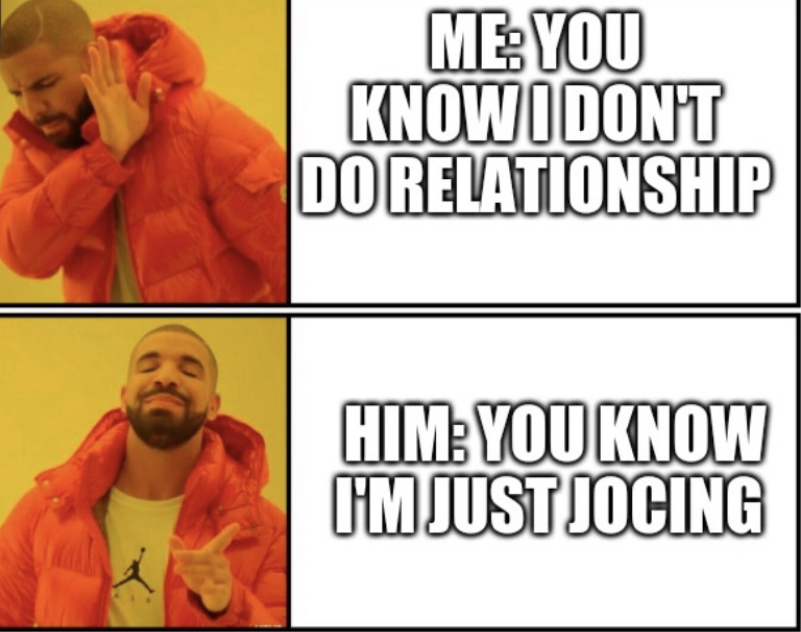Why: Because it is frequently used by me and people in my city. It contains a word almost every New Orleans person under 30 knows.
Pronounciation: (jəst joe-sin)

“You know I’m just jocing” (Photo by: Jada Edwards)
The versatile phrase “Just jocin” holds a dual role in colloquial language. Firstly, it serves as a disclaimer when someone jests about a situation. For example: Chia storms up to LeAnn, all worked up and vents about a tiff with her shady social media nemesis. LeAnn, wide-eyed, asks if Chia threw down. Chia would laugh and say “Girl I’m just jocin, but I seen her in the hallway on the way here and if she keep playin i’m really gone beat her up, for real!”
In a contrasting scenario, the phrase takes on a second meaning when referring to a casual romantic interaction without genuine feelings. Kyree spots Mike with Jayda at the football game and, surprised, calls him over. “When did you start dating Jayda?” Kyree asks. Mike grins, “I don’t date her, I’m just jocin her right now. Don’t tell anybody you seen me with her ’cause we not a thing, she just look fine so I had to see what she on and if she tryna let me come over. You know!”
In both contexts, “Just jocin” navigates the fine line between humor and serious intention, adding a layer of playfulness to everyday interactions.
The term “jocin” traces its roots to “joking” and “joke.” “Joke” has a historical link to medieval jesters who entertained courts with foolish antics during times of war, aiming to diffuse tension. When one is “jocin,” it’s often for laughs or entertainment.
The term “jocin” hails from “joke” and “jester.” Jesters, used to ease tensions during wars, played a crucial role in diffusing conflict.
The term “just” in “just jocin” dates back to 1325, where it means “only.” In this phrase, it emphasizes the lighthearted and non-committal nature of the jesting.
This piece was edited by Lily Cook as part of Professor Kelley Crawford’s Digital Civic Engagement course at Tulane University.
 Earthtalk: “Cool Roofs” for New Orleans
It’s hot outside, but it could be cooler! In this article, Brooke Theis explores Cool Roofs, an effective solution to the urban heat island effect that makes the New Orleans heat so unbearable. The author also explores inequalities in how people experience the environment from identity perspectives like race and class.
Earthtalk: “Cool Roofs” for New Orleans
It’s hot outside, but it could be cooler! In this article, Brooke Theis explores Cool Roofs, an effective solution to the urban heat island effect that makes the New Orleans heat so unbearable. The author also explores inequalities in how people experience the environment from identity perspectives like race and class.
 Big Chem-EZ: How can small Louisiana communities access clean drinking water after a hurricane?
When I went to visit the Pointe-au-Chien tribe after Hurricane Ida with my Service Learning class, I heard that one of the biggest challenges in the aftermath of the hurricane was finding enough drinking water, so in this article, I explore water purification methods: 1) when they are necessary, 2) how they work, and 3) if they really make your water safe to drink.
Big Chem-EZ: How can small Louisiana communities access clean drinking water after a hurricane?
When I went to visit the Pointe-au-Chien tribe after Hurricane Ida with my Service Learning class, I heard that one of the biggest challenges in the aftermath of the hurricane was finding enough drinking water, so in this article, I explore water purification methods: 1) when they are necessary, 2) how they work, and 3) if they really make your water safe to drink.
